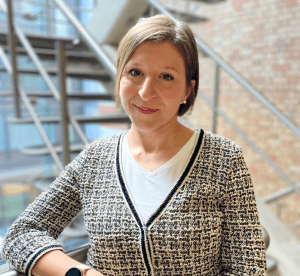
Dr Lucia Cottone
University College London
Awarded: £129,795
The challenge
Osteosarcoma is a common type of bone cancer, commonly affecting children and young adults. Nearly half of patients respond poorly to chemotherapy, but this treatment has not changed as standard of care for decades. But researchers have not yet been able to find an explanation as to why osteosarcomas resist the effects of chemotherapy. Understanding why is the first step to finding a better treatment for these patients.
How will this project tackle this challenge?
The team on this project have previously found that osteosarcoma cells can escape the action of chemotherapy. Most chemotherapy drugs work by killing rapidly dividing cells. But they found that when chemotherapy drugs are administered, some osteosarcoma cells can stop their divisions and ‘go to sleep’. When the level of drug reduces they ‘wake up’. They also found that osteosarcoma patients who responded poorly to chemotherapy have higher levels of cells that can do this.
Investigating this process (called ‘quiescence’) could allow us to develop ways of stopping cells ‘going to sleep’, killing them, or putting them out of their quiescent state so they regain sensitivity to chemotherapy.
In this project, a PhD student will delve into the biological characteristics of these quiescent cells in osteosarcoma, using cutting edge technologies. They will then test different drugs predicted to target molecules vital for quiescent cells. If the cells can be made more sensitive to chemotherapy using these drugs, this line of treatment could be used for some patients in the future.
What this means for people affected by sarcoma
This project will improve our understanding of how osteosarcoma cells become resistant to chemotherapy. From there, researchers will be able to identify ‘markers’ to recognise patients for whom chemotherapy will be less effective. This work will also help identify potential new treatments to make chemotherapy work better, a first step towards new clinical trials.
This project is the 2023 Sayako Grace Robinson PhD Studentship, awarded to one PhD research project every year in memory of Sayako Grace Robinson, who died of angiosarcoma in 2014.








